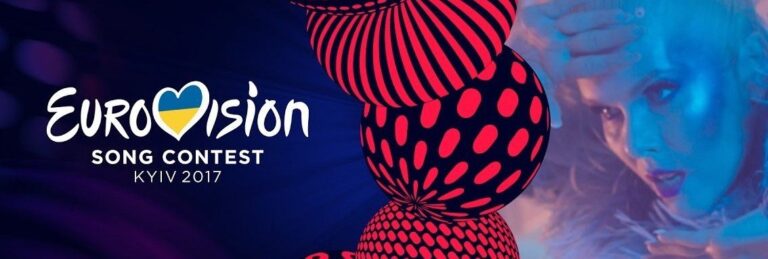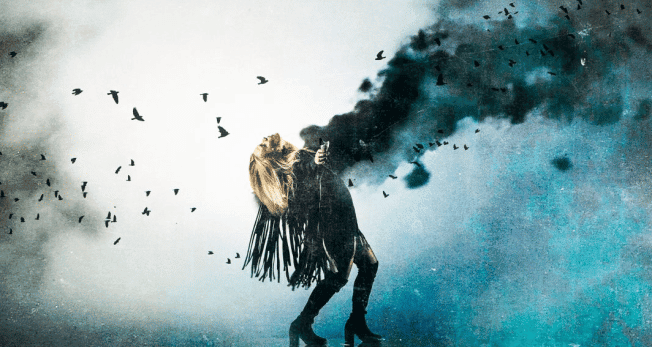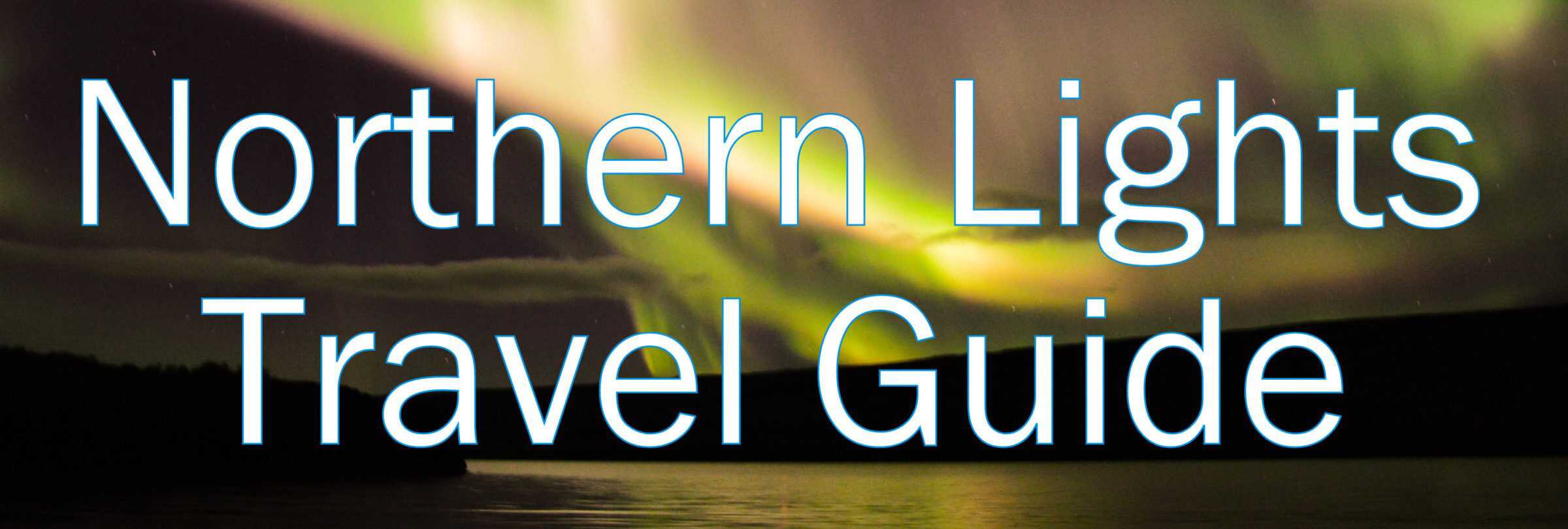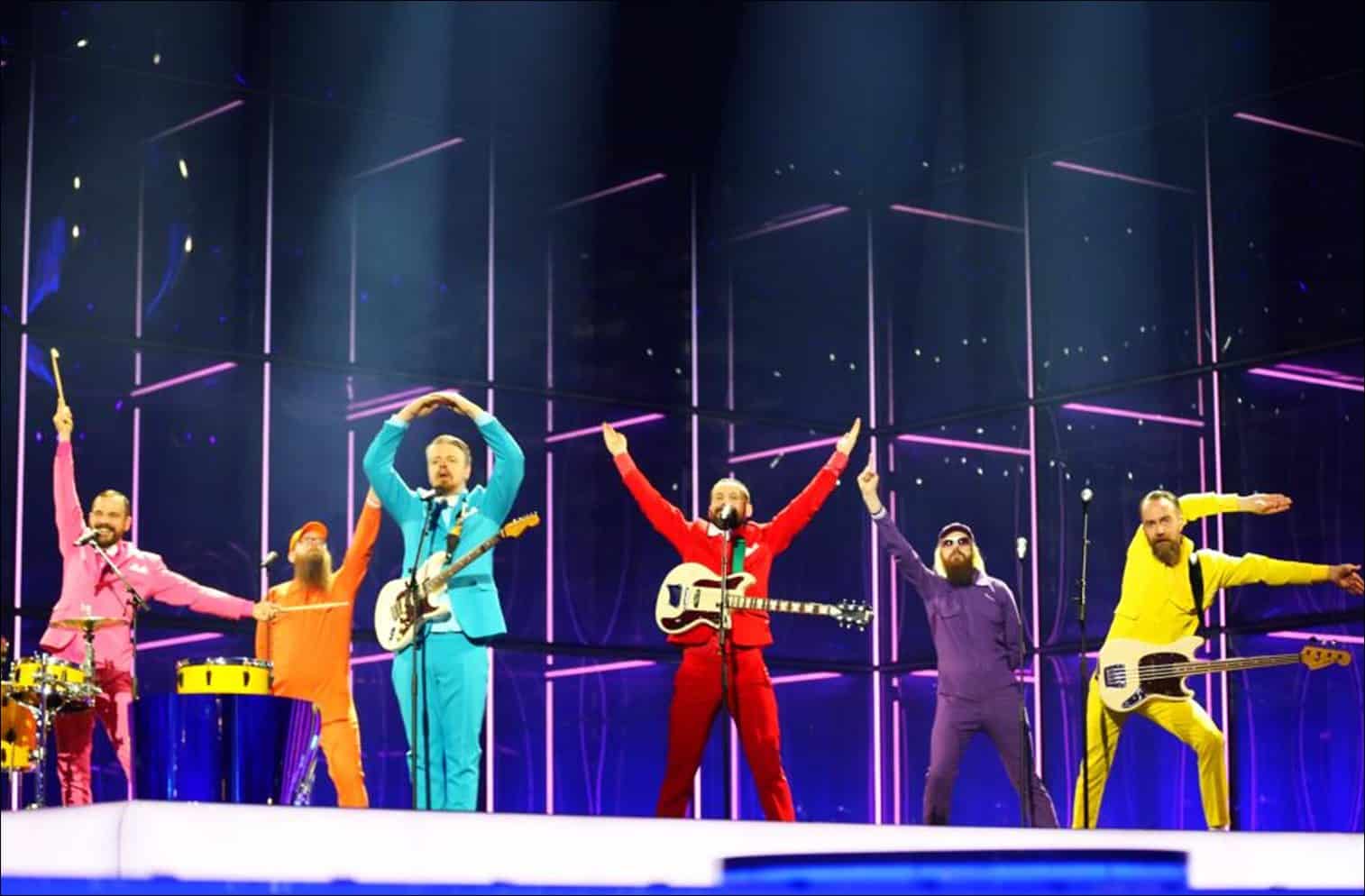 There are few events in Iceland that creates such controversy. So many people say they don’t like to watch it, boring music etc while the other half can’t wait to participate and enjoy the world’s biggest music competition, a competition that is gaining more and more momentum around the world. The expected numbers of viewers all around the world will reach over 200 million viewers. One thing the Icelanders do have in common, no matter what they say, after the weekend, most of us will talk about the competition, even those who said they have no interest in the contest! 🙂
There are few events in Iceland that creates such controversy. So many people say they don’t like to watch it, boring music etc while the other half can’t wait to participate and enjoy the world’s biggest music competition, a competition that is gaining more and more momentum around the world. The expected numbers of viewers all around the world will reach over 200 million viewers. One thing the Icelanders do have in common, no matter what they say, after the weekend, most of us will talk about the competition, even those who said they have no interest in the contest! 🙂
Eurovision history
The first Eurovision was held in 1956 and the reason for the contest is a technical one. All public broadcasting stations in Europe collaborate in an union called EBU, European Broadcasting Union. The main technicians had a big meeting once and during the meeting, a question came up. Can we connect the union countries all together and have one, big live event? They all agreed that it was a brilliant idea to test the technical capabilities of the time but what would the broadcast be? Someone came up with the idea: “Why not a song contest?”. Everybody loved the idea and Eurovision was born.
Up to 2017, 1700 songs have been played and 43 countries have participated. In 2015, the Eurovision Song Contest was recognized by the Guinness Book of World Records as the longest running annual TV music competition. This year 42 countries will take part and the 3.5 2017 will air live and commercial free on Saturday, May 13 at 12 PM PT on Viacom’s “Logo”. This year the contest is held in Kiev, Ukraine which has caused a bit of a problem with the Russian entry. That ended with the Russians withdrew their entry because they were banned to enter.
How does Eurovision work?
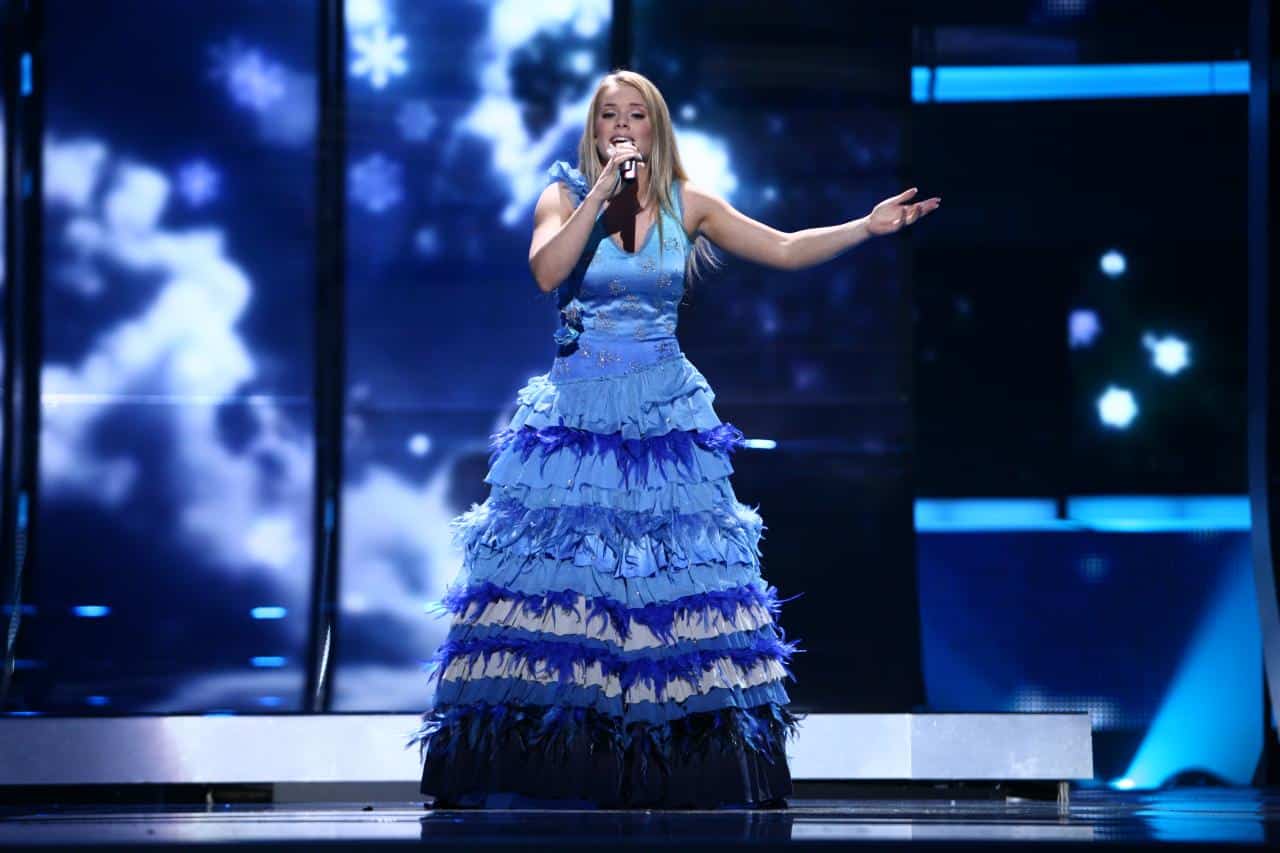 Early each year, the competing countries have their own Eurovision contest in different ways, to find out what artist will represent the country. The winner for each country has to be announced before a set time to the organisers. Because of the size of the contest, it is divided into 2 semifinals and one final. The host organizers have a seat in the finals automatically so they do not take part in the semi finals. 10 countries from each semifinals goes to the finals where 26 countries will compete.
Early each year, the competing countries have their own Eurovision contest in different ways, to find out what artist will represent the country. The winner for each country has to be announced before a set time to the organisers. Because of the size of the contest, it is divided into 2 semifinals and one final. The host organizers have a seat in the finals automatically so they do not take part in the semi finals. 10 countries from each semifinals goes to the finals where 26 countries will compete.
While performing on stage, no more than 6 people are allowed on stage and no animals. The instruments has to be prerecorded and used as playback. The play back may not contain any voices nor mimicking voices and the songs may not be a second longer than 3 minutes
Each competition follows with a voting where each participating country are connected live to announce how the phone voting went in each country. For each competition, a judge panel also gives points to each performance. The total score are then put together and the winners are announced.
The voting itself is equally as interesting as the performance itself. When the winning performance/country has been announced, that country gets to host Eurovision the following year.
Iceland’s performance in Eurovision
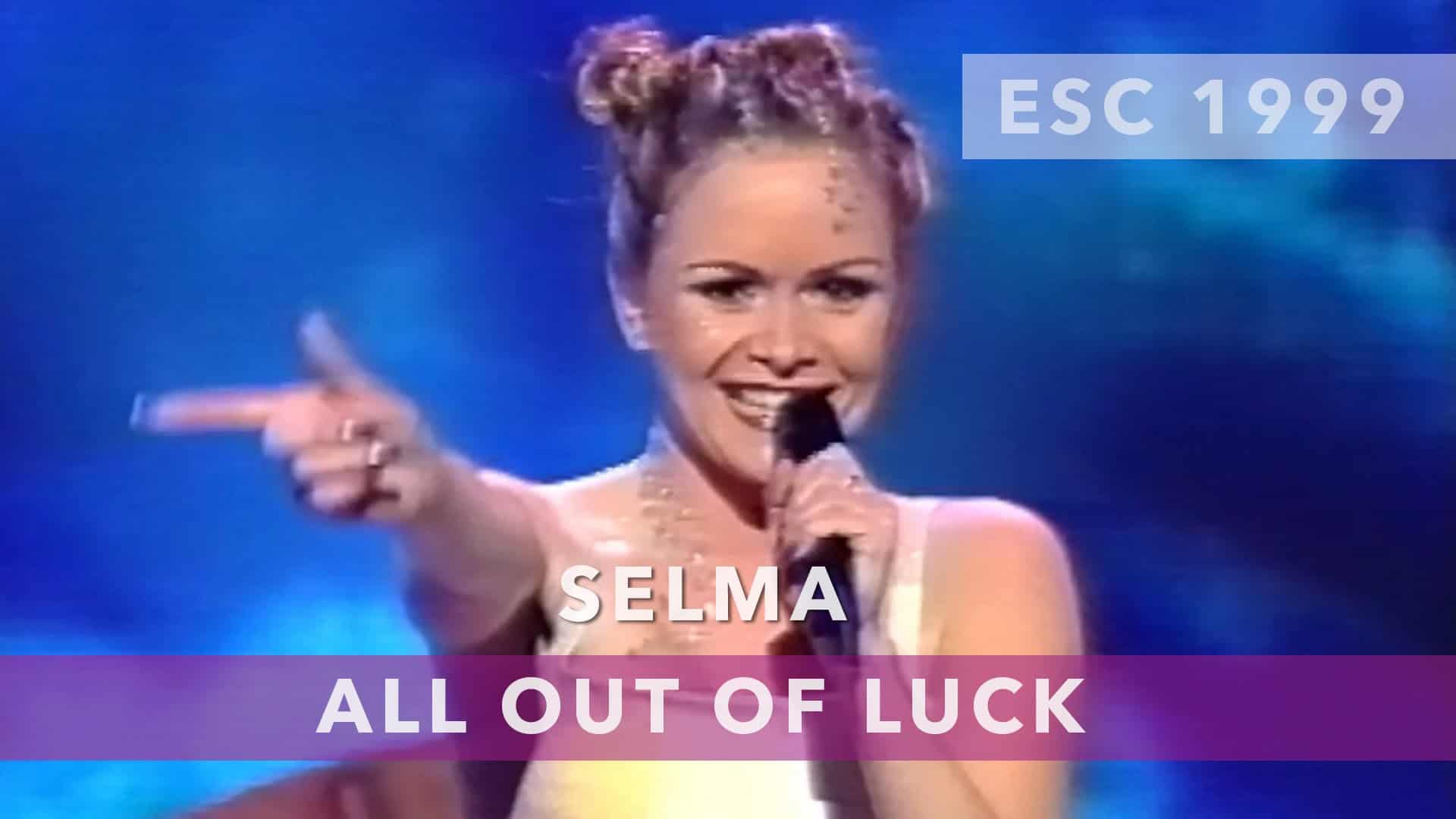 The actress/singer Selma Björnsdóttir was the first one who got a top three place back in 1999 with her tune “All out of luck“. Her very energetic performance left many untouched and Icelanders where jumping in their seats during her performance in the finals.
The actress/singer Selma Björnsdóttir was the first one who got a top three place back in 1999 with her tune “All out of luck“. Her very energetic performance left many untouched and Icelanders where jumping in their seats during her performance in the finals.
Yohanna also got a 2nd place in 2009 with her power ballad “Is it true?“, Her powerful voice made many jaws drop when she hit those high notes. A very good performance indeed.
Iceland also had an entry which didn’t recieve one single point. The tune “Það sem engin sér” with Daníel Ágúst from GusGus didn’t win any hearts at all outside Iceland
The first Icelandic entry was back in 1986 with a tune called “Gleðibankinn“, The joy bank which got the 16th seat.
Svala – Paper
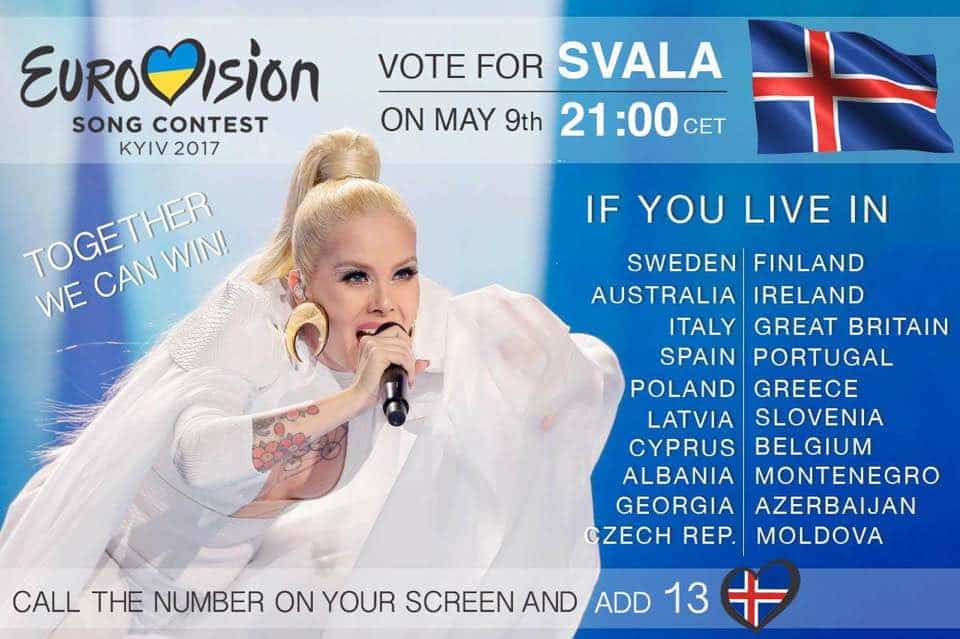 Iceland’s contribution 2017 is a woman who has been in the showbiz for many years and so has her brother and father too. Her father Bo Halldórsson competed back in 1995 with the tune “Núna” that got a 15th place. Svala started her career early when she was the backup singer for her father when she was only 7 years old. At the age of 9, she had the number one hit in Iceland and she repeated that performance at the age of 11 when she once more had the number one hit in Iceland.
Iceland’s contribution 2017 is a woman who has been in the showbiz for many years and so has her brother and father too. Her father Bo Halldórsson competed back in 1995 with the tune “Núna” that got a 15th place. Svala started her career early when she was the backup singer for her father when she was only 7 years old. At the age of 9, she had the number one hit in Iceland and she repeated that performance at the age of 11 when she once more had the number one hit in Iceland.
She studied ballet for 7 years at the Icelandic National Theater Ballet and while doing that, she was also writing music and took part of the school band. At the age of 16, she took part in forming many bands here like Scope, Bubbleflies and Steed Lord (came much later)
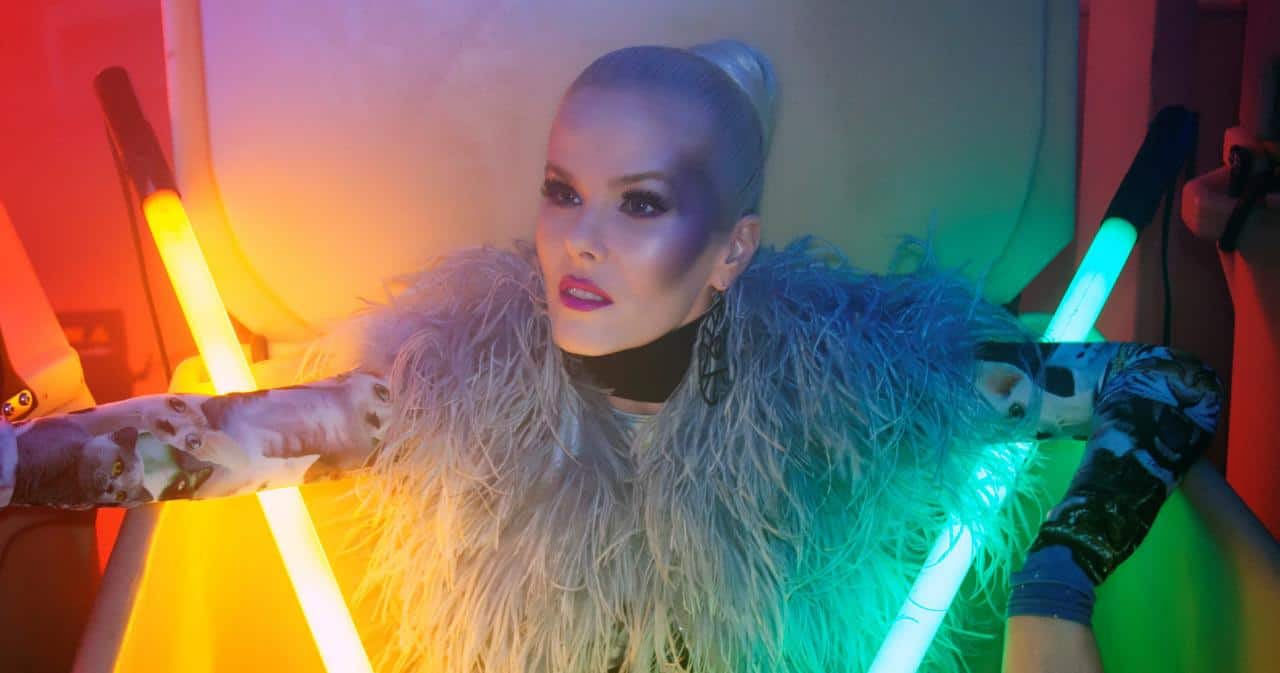 When she was 18 years old she went to college in Iceland while traveling to London and Glasgow, working with a producer there and released her first solo album after that co-operation.
When she was 18 years old she went to college in Iceland while traveling to London and Glasgow, working with a producer there and released her first solo album after that co-operation.
In 1999 she signed a six-album deal with EMI and Priority Records in the States and the year after she moved to Los Angeles to pursue her career.
Fun facts about Eurovision
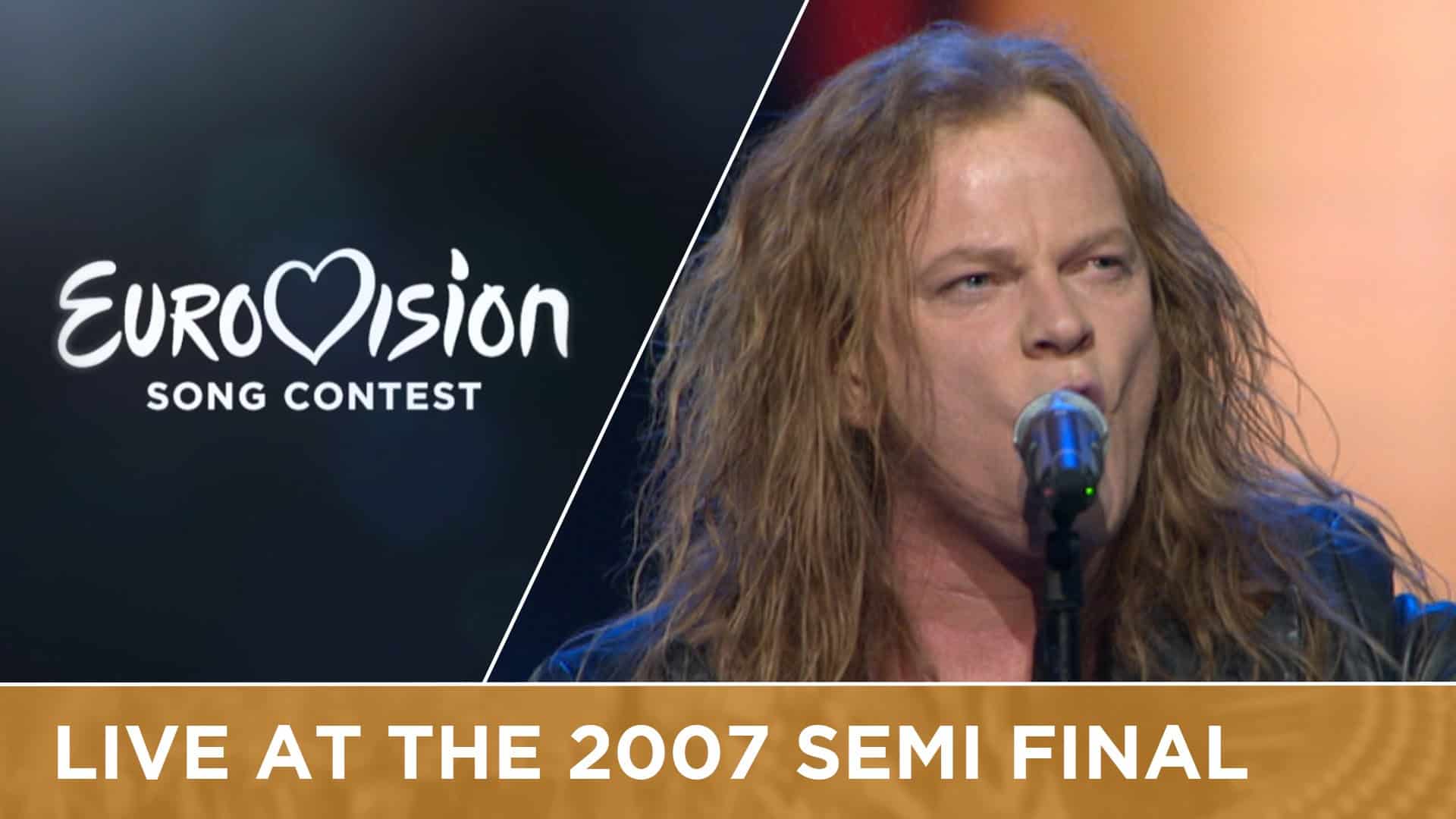 1. The contest always begins with the playing of the fanfare “Prelude To Te Deum” by Marc-Antoine Charpentier.
1. The contest always begins with the playing of the fanfare “Prelude To Te Deum” by Marc-Antoine Charpentier.
2. In 1981 the UK act Bucks Fizz stunned viewers with their Velcro rip-away skirts and within 48 hours, Velcro had sold out across the country.
3. The youngest singer to ever win Eurovision was 13-year-old Sandra Kim from Belgium who won in 1986.
4. When Ukrainian artist Ruslana won Eurovision in 2004, she was rewarded with a seat in the Ukrainian Parliament.
5. Riverdance was first performed during the interval act of Eurovision Song Contest 1994.
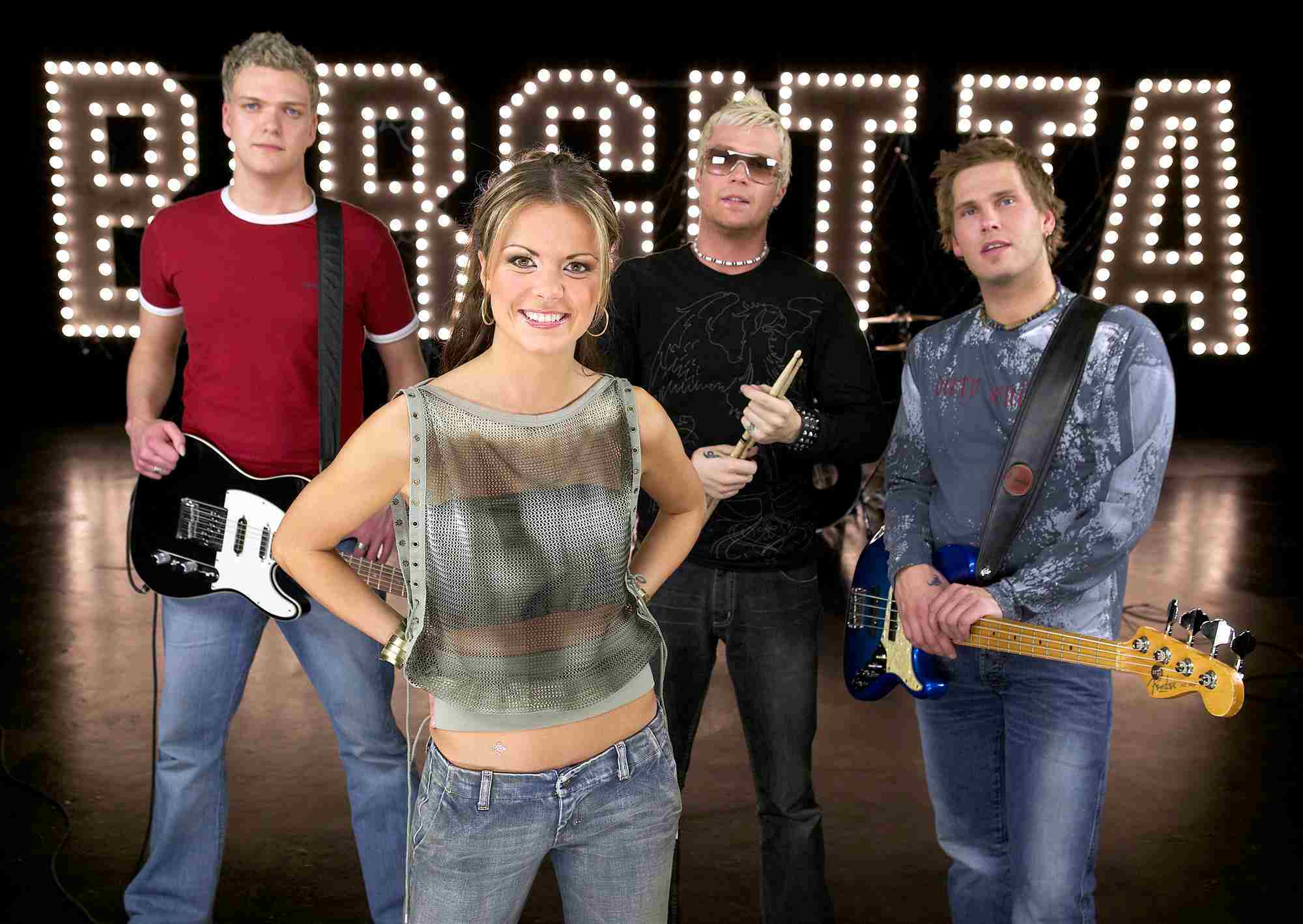 6. From 1978 to 1998 the rules stated that each country had to sing in one of their national languages.
6. From 1978 to 1998 the rules stated that each country had to sing in one of their national languages.
7. United Kingdom gave 0 points to ABBA in 1974.
8. 95 percent of the Danish viewing public saw the 2001 contest on TV.
9. Eurovision Song Contest is the world’s biggest music show.
10. When Azerbaijan won in 2011, commemorative national stamps were released of the winning duo Ell & Nikki.
11. In 2009, the set for the Eurovision finale in Moscow utilized 30% of the world’s supply of LED screens.
12. In 1978 Jordanian TV showed some flowers instead of the Israeli entry. And when Israel won, Jordan pretended it was Belgium.
So, if you are in Iceland during the Eurovision song contest, find a bar and enjoy the show for it’s huge, interesting while the songs might not all be brilliant ones, it is entertainment of the highest class!
Have fun! #WohoCamper
Iceland Travel Guides
If you like what you see, please subscribe to our YouTube channel!

